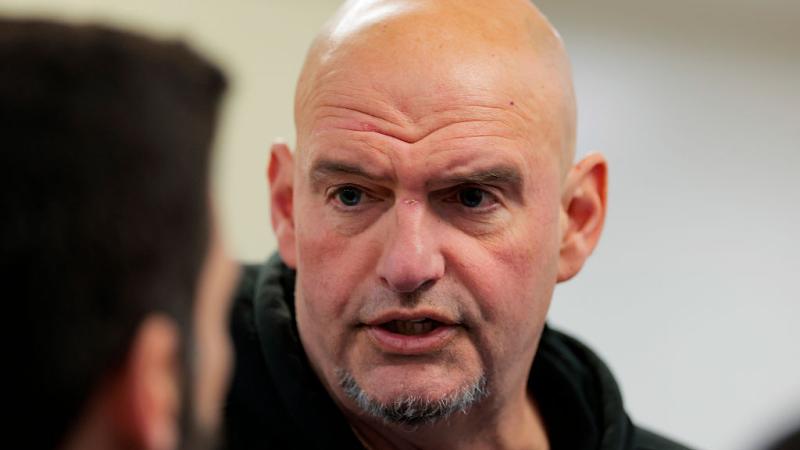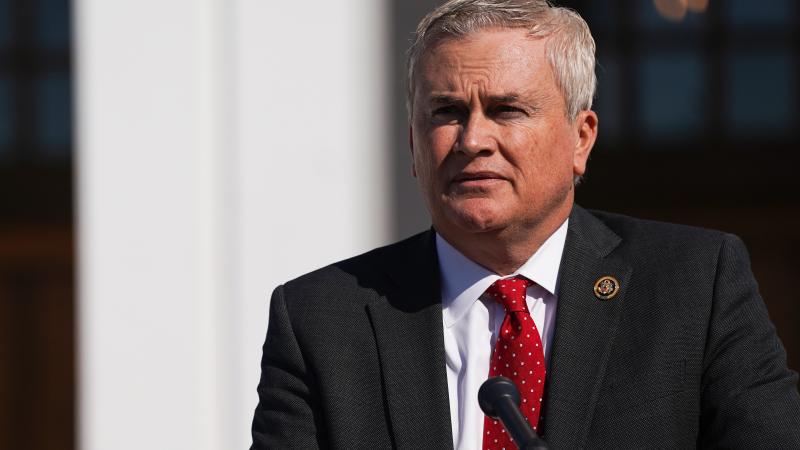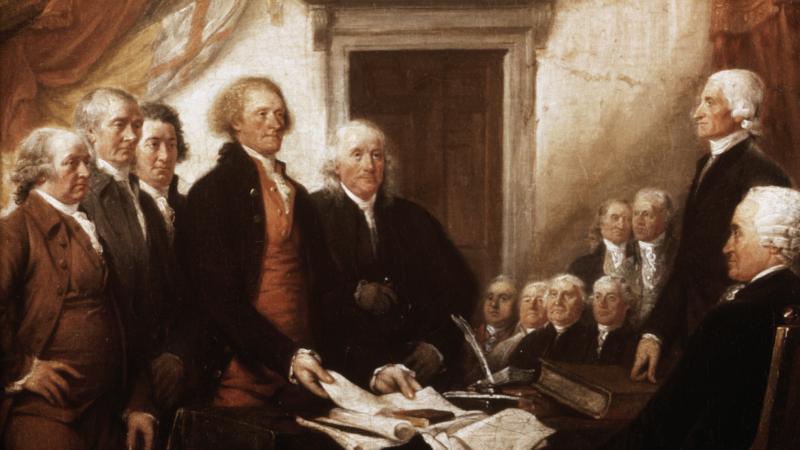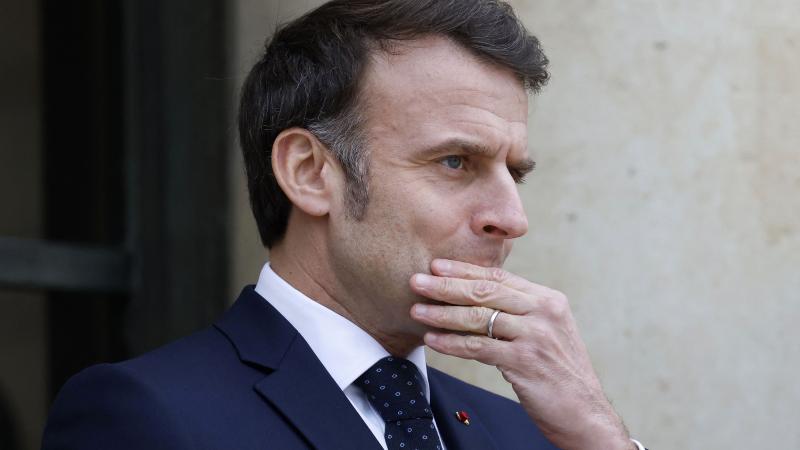SCOTUS' Medicaid ruling lays roadmap for states nationwide to defund Planned Parenthood
Red states' rights: Planned Parenthood faces likely a state-level defunding campaign after the Supreme Court ruling. Planned Parenthood operates close to 600 nationwide, and currently operates two clinics in the Palmetto State.
The Supreme Court’s decision Thursday to permit South Carolina to bar Medicaid from issuing reimbursements to Planned Parenthood clinics has laid the groundwork for other states to follow suit ahead of a planned vote in Congress on stripping the abortion giant of federal funds altogether.
The organization is a leading provider of abortion services in the United States. Its 2023 annual report suggests that it performed nearly 400,000 of the approximately 1 million U.S. abortions that year, meaning it was responsible for almost 40% of abortions in the U.S. Planned Parenthood does not advertise itself as an "abortion clinic" but instead uses the euphemism "women's health" on the basis that they provide other, non-abortion-related services as well.
Planned Parenthood Federation of America, along with the National Abortion Federation (NAF) sponsors the abortionfinder.com website, which provides ease of access to women seeking an abortion.
Republicans have, for years, promised to strip Planned Parenthood of federal funding, though no Republican-led Congress has followed through on that pledge until now. President Donald Trump’s “One Big, Beautiful Bill Act” has already cleared the lower chamber and the Senate is expected to vote on the plan before July 4.
Even should it fail, however, the Supreme Court ruling leaves the states armed with their own tools for denying funding to Planned Parenthood.
What the Supreme Court actually said: No right to sue
Planned Parenthood South Atlantic currently operates two clinics in the Palmetto State. In 2018, the state determined that the clinics could not participate in the South Carolina Medicaid program due to state law prohibiting taxpayer-funded abortions. That decision pre-dated the 2022 Dobbs v. Jackson decision that eliminated the constitutional right to an abortion.
The court did not specifically address the matter of whether the state could remove the clinics, but instead found that the Medicaid program did not create an individual right of suit for providers or patients and that enforcement authority lay with Congress. Under typical circumstances, moreover, the federal government may withhold federal funding for state programs if found to be in noncompliance with the terms of the grant.
File
Many outlets reported the ruling as paving the way for states to remove Planned Parenthood from state Medicaid programs. A close reading of the ruling, however, merely shows that neither Planned Parenthood nor any patient have a right to sue over the matter.
Theoretically, it appears that a subsequent secretary of Health and Human Services could opt to withhold federal funds to a state program if he found that excluding Planned Parenthood clinics violated the terms of funding. HHS Secretary Robert F. Kennedy has issued no such finding nor has the Supreme Court ruled on the merits of that potential dispute.
“Empowerment of states to decide whether they're going to use Medicaid to cover Planned Parenthood or not is, I think, entirely within the purview – the Plenary Power of states. So I think [the] Supreme Court got it absolutely right here,” Rep. Mike Kennedy, R-Utah, said Thursday on the “John Solomon Reports” podcast.
The ruling is, though incomplete, a clear win for anti-abortion advocates, especially as Congress prepares to hold a vote on eliminating all federal funding for Planned Parenthood on July 4. Congressional authorization, assuming Trump signs it, would presumably supersede any possible HHS oversight as the secretary’s authority to withhold funds is contingent on the state’s compliance with the terms Congress authorized and an explicit ban from the legislature would render the state in indisputable compliance.
Even should the federal effort fail, however, individual states appear able to remove Planned Parenthood clinics in their state from the Medicaid program, allowing conservatives multiple chances to chip away at public funding.
Federal dollars do the legwork, one way or another
Long a target of anti-abortion conservatives, Planned Parenthood and its affiliates have received billions in federal funds, largely through reimbursements from public programs such as Medicaid and Medicare. A Government Accountability Office (GAO) study from 2023, for instance, found that Planned Parenthood and its affiliates received $148 million in HHS grants from 2019-2021, $89 million from Paycheck Protection Program loans, and $1.54 billion in Medicaid, Medicare, and other public reimbursements. For a single-year context, Planned Parenthood received 43% of its revenue from government grants and/or reimbursements in the 2014-2015 fiscal year.
The effort to defund Planned Parenthood comes as part of President Donald Trump’s “Big, Beautiful Bill”, a massive legislative package of his top budgetary and immigration priorities that has already passed the House. The chamber specifically approved provisions that would prohibit federal reimbursements to organizations that provide abortions except in the cases of rape, incest, or a threat to the mother’s life.
Sen. Rand Paul, R-Ky., meanwhile, has introduced a separate bill to explicitly bar federal funds from going to Planned Parenthood or any of its affiliate groups. It has not received a vote. In any case, the Senate portion of the Big, Beautiful Bill is expected to face a vote before July 4, though intervention of the Senate parliamentarian to block some provisions passing with a simple majority could delay the timing. Parliamentarian Elizabeth McDonough, a Democratic appointee, this week, blocked some Republican-backed Medicaid reforms, though the abortion-related provisions appear intact.
Notably, the proposed legislation only addresses federal funds “considered direct spending and provided to carry out a State plan” and states may separately allocate direct funding for abortion in their Medicaid plans. The Hyde Amendment currently prohibits federal funding for abortions except in the cases of rape, incest, or a threat to the life of the mother, and has been emphasized by the Trump White House.
At this time, Rand Paul's bill has been referred to the Committee on Health, Education, Labor, and Pensions, and that committee has not yet approved the draft for a full vote.
Ramifications for abortion nationwide
Anti-abortion groups, for their part, seem to see the Senate vote as a chance to eliminate federal funding for Planned Parenthood and are planning large-scale demonstrations in support of the effort this weekend. Live Action, one of the most prominent anti-abortion groups, is planning a “Defund Day” for Saturday, with nationwide demonstrations planned to show support for ending all federal funding to Planned Parenthood.
Conservative media personality Sarah Stock, who is leading the LA-based demonstration, told Just the News that “[w]e’ve already seen God work a miracle with the Supreme Court to overturn Roe v. Wade and we’re hopeful that he will work another one with the senate vote to defund Planned Parenthood.”
“I’m excited to demonstrate on Saturday with thousands of other pro-lifers across the nation to call on our leaders to stop using our taxes to fund the murder of unborn babies,” she added. “If this goes through, it’ll be a huge blow to the abortion industry and very many innocent lives will be saved.”
Planned Parenthood, for its part, has warned that federal defunding would endanger hundreds of its clinics and restrict access to health care for minority communities.
Opponents raise risks to non-abortion services in minority communities
“If this bill passes, people will lose access to essential, often lifesaving care — cancer screenings, birth control, STI testing, and yes, abortion. Planned Parenthood health centers are irreplaceable, especially for women, Black, Indigenous, people of color, rural communities, and those with low incomes,” Planned Parenthood Alliance Advocates Hawaii State Director Jen Wilbur said in May.
“Defunding Planned Parenthood would cost taxpayers nearly $300 million and force health center closures. Our already strained public health infrastructure will not be able to absorb the loss, and it will break.”
Lawmakers in the lower chamber, however, have asserted that Planned Parenthood’s claims that it is indispensable for under-served communities are false, and the impact will be minimal.
“Planned Parenthood holds itself out as some sort of vital component of women's healthcare,” Kennedy said on the "John Solomon Reports" podcast. "The reality is we've got a vast healthcare system ready to receive and serve these people that need help, and the idea that they can only go to Planned Parenthood is the creation of Planned Parenthood itself. We have urgent care, emergency departments.”
Ben Whedon is the chief political correspondent at Just the News. Follow him on X.
The Facts Inside Our Reporter's Notebook
Documents
File
Links
- "women's health."
- abortionfinder.com
- 400,000
- Dobbs v. Jackson
- found that the Medicaid program
- Government Accountability Office (GAO)
- Planned Parenthood
- approved provisions
- Rand Paul
- Elizabeth McDonough
- referred to the Committee on Health, Education, Labor, and Pensions
- Defund Day
- Sarah Stock
- Jen Wilbur said
- Follow him on X.














